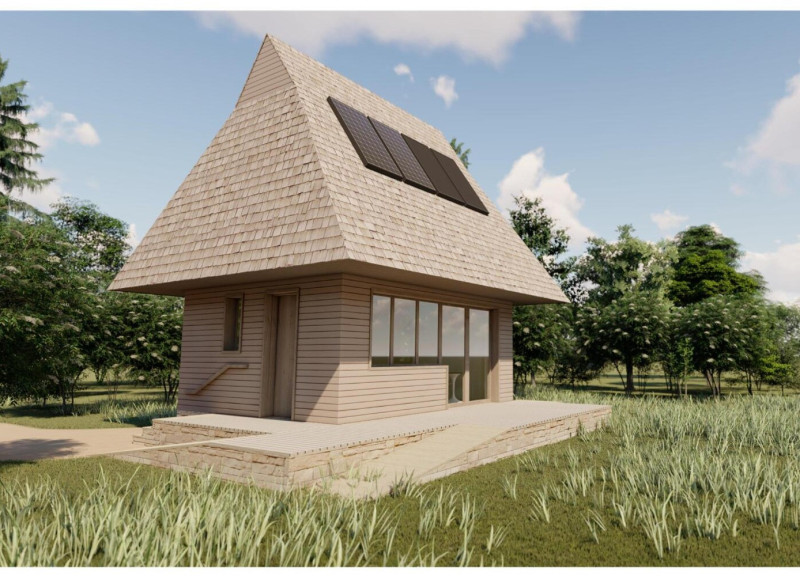5 key facts about this project
The design is located in the Latvian countryside, where it aims to blend built structures with the natural environment. The idea is to create a modern version of the traditional Latvian rural house, serving as a welcoming place for visitors. The design emphasizes comfort and accessibility, focusing on human-scale interactions that allow people to engage with the surrounding landscape.
Concept and Layout
The layout features cabins organized amidst dense vegetation, enhancing privacy while offering beautiful views. The arrangement creates communal spaces for social interaction, while pathways guide visitors through the site. This design fosters an experience that connects users with nature, encouraging them to appreciate the beauty around them.
Climatic Considerations
Effectively addressing climate challenges is an essential part of the design. Strategies include sun shading for windows that help prevent overheating during warmer months. The careful placement of cabins allows for passive solar heating in the winter, ensuring that indoor spaces remain comfortable year-round. This approach meets the needs of occupants while being mindful of the environment.
Material Selection
Specific materials were chosen for their aesthetic and functional properties. Exterior wood panels offer a natural look, while mineral wool insulation contributes to energy efficiency. Wood shingles for the roofs connect the design to local architectural styles, and local stone flooring ties the cabins to the landscape, making them durable and visually appealing.
Heating Strategy
A practical heating system plays a key role in the design. Solar panels are used to heat water, serving both domestic needs and cabin heating. The system includes a tank filled with beeswax that stores thermal energy effectively. This method lowers dependence on conventional energy sources and supports sustainable practices within the design.
Large windows in the cabins allow ample natural light to enter, creating a bright environment and connecting indoor spaces to the expansive outdoor views. Each design choice reinforces the goal of creating a relaxing retreat that respects its rural setting while providing comfort to its users.






















































